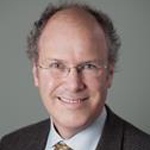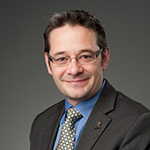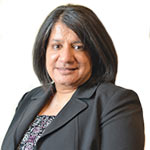Written by Guest Blogger Sarita Sastry, National Director, Research and Programs
Over the last 15 years, 20% more kids (ages 0-19) are surviving cancer. This is great news! But for kids with brain cancer, the outlook is not as promising. Brain cancer is now the leading cause of cancer death in children, replacing leukemia. In a report released earlier this month from the Centers for Disease Control, 30% of kids with brain cancer do not survive, compared to 25% of kids with leukemia. Leukemia is still the most common childhood cancer, but treatments for leukemia are more effective so more kids are surviving. Brain cancers are the second most common cancer, but now are the most common cause of mortality.
Why is that the case? It is not that more kids are being diagnosed with brain cancer, or that there is a decrease in survival rates. But other cancers have seen more advances in research leading to effective treatments. Finding effective treatments for brain cancer has been more challenging for researchers. Brain cancer is difficult to treat – therapies are less effective at getting into brain tissue compared to other areas of the body, the tumor’s location may make it hard to perform surgery, and radiation can be harmful to a child’s brain function and development.
But there is cause for hope. Researchers recognize that new approaches are needed to improve patient outcomes. A greater understanding of the distinct types of brain cancers and the genes that drive each of these types using genomic profiling is an approach CureSearch researchers are using to find new targeted therapies that are safer, more effective and will improve the odds.
 Acceleration Initiative grantee, Dr. William Weiss at UCSF, has been developing new treatments for high-risk medulloblastoma. The overall survival is 65% for this type of cancer, it frequently relapses and has no cure. Dr. Weiss has identified several genes whose activity increases after chemotherapy. The goal of Dr. Weiss’ research is to test FDA approved drugs or drugs that are currently being tested in adult clinical trials to more rapidly repurpose existing drugs for use in pediatric brain cancer. He is using mouse models of medulloblastoma to test distinct therapies targeting three different genes. The ultimate goal is to translate these laboratory studies to pediatric clinical trials. The work will help to find a therapy that is less toxic that can overcome relapse.
Acceleration Initiative grantee, Dr. William Weiss at UCSF, has been developing new treatments for high-risk medulloblastoma. The overall survival is 65% for this type of cancer, it frequently relapses and has no cure. Dr. Weiss has identified several genes whose activity increases after chemotherapy. The goal of Dr. Weiss’ research is to test FDA approved drugs or drugs that are currently being tested in adult clinical trials to more rapidly repurpose existing drugs for use in pediatric brain cancer. He is using mouse models of medulloblastoma to test distinct therapies targeting three different genes. The ultimate goal is to translate these laboratory studies to pediatric clinical trials. The work will help to find a therapy that is less toxic that can overcome relapse.
 In hopes of moving the needle towards cures, Dr. Richard Gilbertson, a recently awarded Acceleration Initiative grantee, at the University of Cambridge in England, is taking an aggressive and comprehensive approach to combating high-risk brain cancers in kids. He is using genomic profiling of three especially aggressive brain cancers – medulloblastoma, ependymoma and chorioid plexus carcinoma. He is developing new animal models, that currently do not exist, to test at least 10 compounds for each brain cancer subtype. He hopes to narrow in on two or three options for each subtype. He will combine the “new”, targeted therapy with chemotherapy, surgery and radiation, first in the animal models, and eventually in patients, to improve outcomes and survival for kids with the deadliest forms of brain cancer.
In hopes of moving the needle towards cures, Dr. Richard Gilbertson, a recently awarded Acceleration Initiative grantee, at the University of Cambridge in England, is taking an aggressive and comprehensive approach to combating high-risk brain cancers in kids. He is using genomic profiling of three especially aggressive brain cancers – medulloblastoma, ependymoma and chorioid plexus carcinoma. He is developing new animal models, that currently do not exist, to test at least 10 compounds for each brain cancer subtype. He hopes to narrow in on two or three options for each subtype. He will combine the “new”, targeted therapy with chemotherapy, surgery and radiation, first in the animal models, and eventually in patients, to improve outcomes and survival for kids with the deadliest forms of brain cancer.
We are proud to support the work of researchers like Dr. Weiss and Dr. Gilberton because they are giving hope to children diagnosed with brain cancer and their families. Most notably, they are helping CureSearch establish a new pathway to end all childhood cancer.
 About Sarita Sastry
About Sarita Sastry
Sarita K. Sastry, PhD, National Director, Research and Programs, oversees CureSearch’s pediatric cancer research grant portfolio, the $10M Acceleration Initiative and the Young Investigators Program. Dr. Sastry also administers the CureSearch Scientific Advisory Council and Scientific Review Committee.
Learn more about the new brain cancer study and then read about the latest Acceleration Initiative.
Want more stories like this?
Get emails that matter, when it matters.
